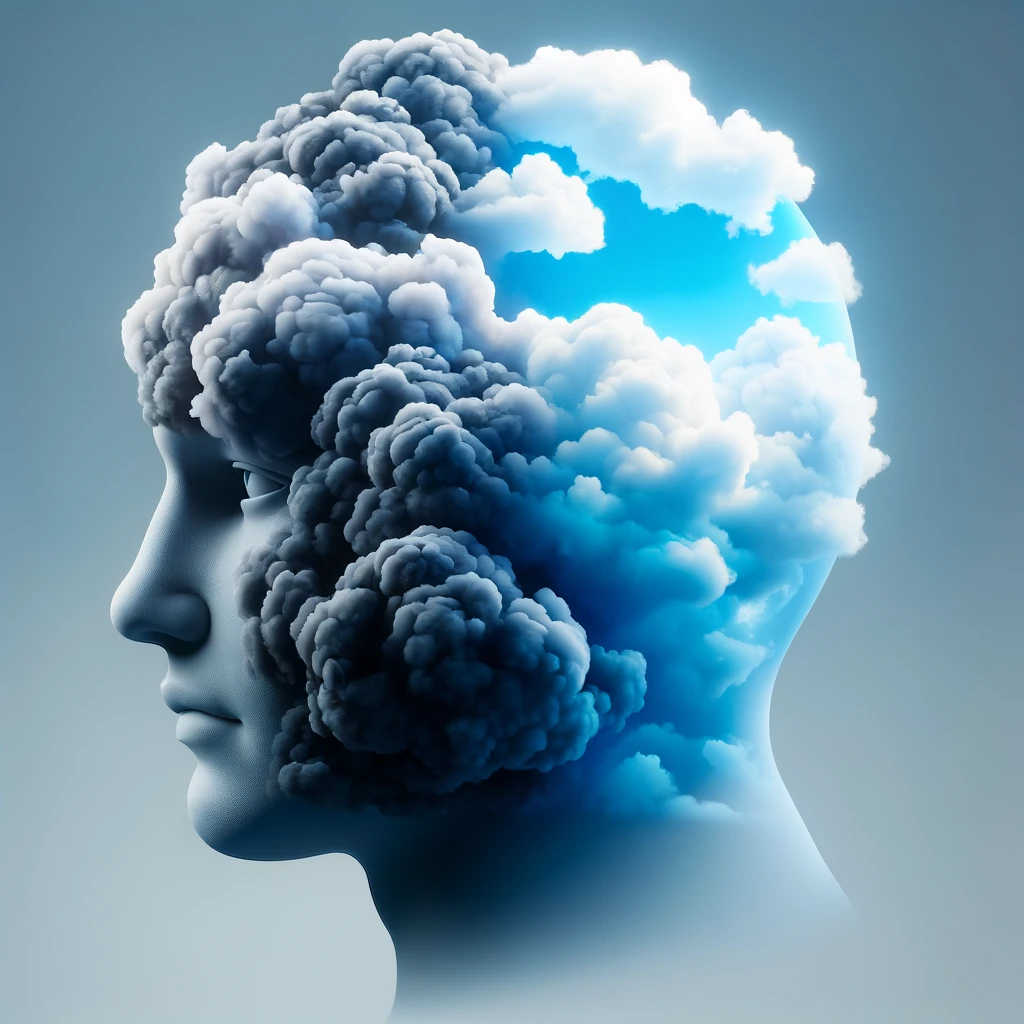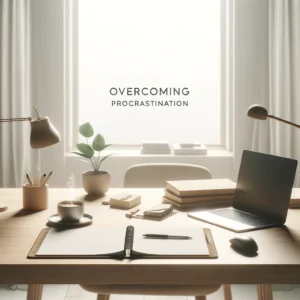Introduction
In today’s hyper-connected world, the pursuit of happiness often seems intertwined with the accumulation of possessions and the constant chase for more. Yet, amidst this relentless pursuit, many individuals find themselves feeling overwhelmed, stressed, and unfulfilled. However, there exists a counter-cultural movement gaining momentum: minimalism. By intentionally simplifying our lives and shedding the excess, minimalism offers a path to greater fulfillment, clarity, and purpose. In this comprehensive guide, we’ll delve deep into the philosophy of minimalism and provide practical strategies for incorporating its principles into your everyday life.

Table of Contents
Understanding Minimalism
Minimalism is not merely about having less; it’s a deliberate lifestyle choice centered around the idea of simplifying one’s life to focus on what truly matters. At its core, minimalism challenges the notion that happiness and fulfillment are synonymous with material wealth or possessions. Instead, it advocates for the intentional removal of clutter—both physical and mental—in order to create space for the things that bring genuine joy, meaning, and fulfillment.
Principles of Minimalism
- Intentional Living: Minimalism encourages individuals to make conscious choices about how they allocate their time, energy, and resources. It involves aligning one’s actions and possessions with their core values and priorities, rather than succumbing to societal pressure or consumerist impulses.
- Mindful Consumption: Central to minimalism is the idea of mindful consumption—being thoughtful and deliberate about what we bring into our lives. This involves questioning the necessity and utility of each item or activity, as well as considering its long-term impact on our well-being and the environment.
- Prioritizing Experiences Over Possessions: Minimalism emphasizes the importance of experiences and relationships over material possessions. Instead of accumulating more stuff, minimalist practitioners focus on investing in meaningful experiences, fostering deep connections with others, and cultivating personal growth and fulfillment.

Evolution of the Minimalist Movement
While minimalism has deep philosophical roots dating back centuries, its modern iteration has gained prominence in response to the excesses of consumer culture and the growing recognition of the negative impacts of materialism on mental health and the environment. Influential figures such as Joshua Fields Millburn and Ryan Nicodemus, known as The Minimalists, have popularized minimalist principles through books, documentaries, and online platforms, sparking a global movement of individuals seeking a simpler, more intentional way of living.
Key Concepts and Practices
- Decluttering: One of the foundational practices of minimalism is decluttering—systematically removing excess possessions and simplifying one’s physical environment. This process not only creates more space and clarity but also encourages mindfulness and detachment from material attachments.
- Simplicity in Design: Minimalism extends beyond personal possessions to encompass design aesthetics, architecture, and lifestyle choices. Minimalist design emphasizes clean lines, uncluttered spaces, and functionality, promoting a sense of calm and harmony in the surrounding environment.
- Essentialism: A related concept to minimalism is essentialism, which focuses on identifying and prioritizing the essential few things that truly matter while eliminating the non-essential distractions. By embracing essentialism, individuals can streamline their lives, reduce decision fatigue, and allocate their resources more effectively.
In essence, minimalism is a philosophy of intentional living—a conscious choice to pare down the excess and embrace a simpler, more meaningful existence. By adopting minimalist principles and practices, individuals can free themselves from the burden of material possessions, reclaim their time and energy, and cultivate a deeper sense of fulfillment, purpose, and joy in their lives. Minimalism is not a one-size-fits-all solution, but rather a customizable framework that empowers individuals to design a life that aligns with their values, passions, and aspirations.
The Benefits of Minimalism
Minimalism offers a multitude of benefits that extend beyond simply having a clutter-free living space. By embracing minimalist principles and practices, individuals can experience profound transformations in various aspects of their lives, including their mental and emotional well-being, financial stability, and overall quality of life. Here are some key benefits of minimalism:
- Reduced Stress and Anxiety: Cluttered environments can contribute to feelings of overwhelm and anxiety. Minimalism promotes a sense of calm and tranquility by removing excess distractions and simplifying one’s surroundings. A clutter-free space can lead to reduced stress levels, improved concentration, and enhanced mental clarity.
- Increased Focus and Productivity: Minimalism encourages individuals to prioritize what truly matters and eliminate non-essential distractions. By streamlining their possessions, commitments, and daily routines, minimalist practitioners can enhance their focus, productivity, and effectiveness in achieving their goals.
- Financial Freedom: Consumerist culture often encourages excessive spending and accumulation of possessions, leading to financial stress and debt. Minimalism advocates for mindful consumption and intentional spending, helping individuals live within their means and prioritize financial stability. By reducing unnecessary purchases and living more frugally, minimalist practitioners can save money, pay off debt, and achieve greater financial freedom.
- Enhanced Creativity and Innovation: Cluttered environments can stifle creativity and hinder innovation by overwhelming the mind with sensory input and distractions. Minimalism creates space for creativity to flourish by fostering a sense of openness, clarity, and inspiration. By decluttering their physical and mental space, individuals can tap into their creative potential and explore new ideas and possibilities.
- Improved Relationships and Social Connections: Minimalism encourages individuals to prioritize experiences and relationships over material possessions. By focusing on meaningful connections with others, minimalist practitioners can cultivate deeper, more authentic relationships and foster a sense of community and belonging. Minimalism also promotes generosity, gratitude, and empathy, enhancing interpersonal dynamics and strengthening social bonds.
- Environmental Sustainability: Excessive consumption and waste contribute to environmental degradation and climate change. Minimalism promotes sustainability by advocating for conscious consumption, reducing waste, and minimizing environmental impact. By consuming less and choosing eco-friendly alternatives, minimalist practitioners can contribute to a healthier planet and a more sustainable future.
- Greater Overall Well-being and Fulfillment: Ultimately, minimalism is about living a more intentional, purposeful life aligned with one’s values and priorities. By simplifying their lives and focusing on what truly matters, minimalist practitioners can experience greater overall well-being, fulfillment, and happiness. Minimalism encourages individuals to pursue experiences, passions, and relationships that bring genuine joy, meaning, and fulfillment, leading to a more meaningful and satisfying life.
In conclusion, the benefits of minimalism extend far beyond the physical act of decluttering. Minimalism offers a holistic approach to living—a way of simplifying and refining every aspect of life to create space for what truly matters. Whether it’s reducing stress, achieving financial freedom, fostering creativity, or cultivating deeper relationships, minimalism empowers individuals to live more intentionally and authentically, leading to a life of greater purpose, fulfillment, and happiness.

Practical Tips for Embracing Minimalism
Embracing minimalism is not just about decluttering your physical space; it’s a mindset shift that involves intentional living and conscious decision-making. Here are some practical tips to help you incorporate minimalist principles into your everyday life:
- Start Small: Begin by decluttering one area of your home at a time, such as a closet, drawer, or countertop. Break the task into manageable steps and focus on one category of items (e.g., clothing, books, kitchen gadgets) before moving on to the next.
- Follow the “One In, One Out” Rule: For every new item you bring into your home, aim to remove an equivalent item. This helps prevent clutter from accumulating and encourages mindful consumption.
- Declutter Mindfully: When deciding what to keep and what to let go of, ask yourself whether each item serves a purpose or brings you joy. Marie Kondo’s question, “Does it spark joy?” can be a helpful guideline for determining which possessions to keep.
- Practice Digital Minimalism: Apply minimalist principles to your digital life by decluttering your digital devices, unsubscribing from unnecessary emails, and limiting your time on social media. Consider deleting apps or digital subscriptions that no longer add value to your life.
- Streamline Your Wardrobe: Create a minimalist wardrobe by curating a collection of versatile, high-quality clothing items that you love and wear regularly. Consider adopting a capsule wardrobe approach, where you mix and match a limited number of clothing pieces to create various outfits.
- Simplify Your Finances: Take a minimalist approach to your finances by tracking your expenses, prioritizing needs over wants, and cutting unnecessary expenses. Consider automating bill payments and setting up a budget to manage your finances more effectively.
- Practice Mindful Consumption: Before making a purchase, pause and consider whether the item aligns with your values and priorities. Ask yourself if you truly need the item or if it’s just a fleeting impulse. Focus on quality over quantity and invest in items that bring long-term value and utility.
- Embrace Empty Space: Allow for empty space in your home and surroundings, as it promotes a sense of openness, calm, and clarity. Avoid filling every available space with furniture or decor, and appreciate the beauty of simplicity and minimalism.
- Let Go of Perfectionism: Understand that minimalism is not about achieving perfection or adhering to strict rules. It’s about finding a balance that works for you and your lifestyle. Embrace imperfection and allow yourself to progress gradually on your minimalist journey.
- Practice Gratitude: Cultivate gratitude for the things you already have and the experiences that bring you joy. Adopting a mindset of gratitude can help shift your focus away from material possessions and towards the abundance of intangible blessings in your life.
Remember that embracing minimalism is a personal journey, and there’s no one-size-fits-all approach. Experiment with different strategies, and find what works best for you. By incorporating these practical tips into your life, you can gradually simplify and streamline your surroundings, leading to greater clarity, peace, and fulfillment.

Minimalism and Mental Well-being
The minimalist lifestyle isn’t just about decluttering physical possessions; it also has profound effects on mental well-being. By simplifying our surroundings and adopting minimalist principles, we can experience greater mental clarity, reduced stress, and enhanced overall well-being. Here’s how minimalism can positively impact mental health:
- Enhanced Focus and Concentration: Minimalist environments are free from distractions, allowing for improved focus and concentration. By eliminating clutter and unnecessary possessions, minimalist practitioners can create an environment conducive to productivity and deep work.
- Improved Decision-Making: Minimalism encourages intentional living and mindful consumption, which can lead to more thoughtful decision-making. By simplifying their lives and focusing on what truly matters, minimalist practitioners can make decisions more easily and confidently, without being overwhelmed by choice.
- Increased Mindfulness: Minimalism fosters mindfulness by encouraging individuals to be present and intentional in their daily lives. By decluttering their physical spaces and minimizing distractions, minimalist practitioners can cultivate a greater sense of awareness and appreciation for the present moment.
- Greater Emotional Well-being: Minimalism promotes detachment from material possessions and external validations, leading to a deeper sense of inner peace and contentment. By shifting their focus away from material wealth and towards meaningful experiences and relationships, minimalist practitioners can experience greater emotional fulfillment and satisfaction.
- Enhanced Creativity: Cluttered environments can stifle creativity by overwhelming the mind with sensory input and distractions. Minimalism creates space for creativity to flourish by providing a clean, uncluttered canvas for inspiration and innovation.
- Improved Sleep Quality: A clutter-free bedroom can promote better sleep quality by creating a peaceful and relaxing environment. Minimalist bedrooms are free from distractions, allowing for restful sleep and rejuvenation.
- Reduced Mental Load: Minimalism reduces the mental load associated with managing and organizing possessions. By owning fewer possessions and simplifying their surroundings, minimalist practitioners can free up mental energy and focus on more meaningful pursuits.
- Encourages Gratitude: Minimalism encourages gratitude for the things we already have, fostering a greater appreciation for life’s simple pleasures. By focusing on gratitude and abundance, minimalist practitioners can cultivate a more positive outlook on life and a greater sense of overall well-being.
All in all, minimalism is not just about aesthetics or decluttering; it’s a holistic lifestyle approach that can have profound effects on mental well-being. By simplifying our lives and focusing on what truly matters, we can experience greater clarity, peace, and fulfillment in our daily lives. Whether it’s reducing stress, improving focus, or fostering creativity, minimalism offers numerous benefits for mental health and emotional well-being.
Minimalism in Different Areas of Life
Minimalism extends beyond decluttering physical possessions; it’s a philosophy that can be applied to various aspects of life, including relationships, work, leisure, and digital habits. By embracing minimalist principles in these areas, individuals can simplify their lives, reduce distractions, and focus on what truly matters. Here’s how minimalism can be applied in different areas of life:
- Physical Possessions:
- Minimalism encourages owning only what is necessary and brings joy, decluttering possessions that no longer serve a purpose.
- Adopting a minimalist wardrobe, consisting of versatile, high-quality clothing items that align with personal style and needs.
- Streamlining home decor to create clean, uncluttered living spaces that promote a sense of calm and tranquility.
- Relationships:
- Prioritizing quality over quantity in relationships, focusing on nurturing meaningful connections with a select few rather than spreading oneself too thin.
- Setting boundaries and letting go of toxic relationships or those that no longer align with personal values and goals.
- Cultivating gratitude and appreciation for the people in one’s life, fostering deeper, more authentic connections.
- Work and Productivity:
- Applying essentialism principles to work and productivity, focusing on high-impact tasks that align with overarching goals and objectives.
- Streamlining workflows and eliminating unnecessary commitments or distractions that hinder productivity.
- Embracing a minimalist workspace, free from clutter and distractions, to promote focus, creativity, and efficiency.
- Leisure and Recreation:
- Adopting a minimalist approach to leisure activities, focusing on quality over quantity and prioritizing experiences that bring genuine joy and fulfillment.
- Simplifying leisure pursuits by reducing the number of hobbies or activities to those that align with personal interests and values.
- Embracing slow living and mindfulness in leisure activities, savoring each moment and being fully present in the experience.
- Digital Habits:
- Practicing digital minimalism by decluttering digital devices and minimizing digital distractions, such as excessive notifications and social media usage.
- Streamlining digital workflows and organizing digital files and documents to enhance productivity and efficiency.
- Cultivating mindfulness in digital consumption, being intentional about the content consumed online and its impact on mental well-being.
- Finances:
- Applying minimalist principles to personal finances, focusing on needs over wants and prioritizing spending on essential expenses.
- Simplifying financial management by automating bill payments, setting up a budget, and reducing unnecessary expenses.
- Embracing frugality and mindful consumption, avoiding impulse purchases and prioritizing long-term financial goals over short-term gratification.
By embracing minimalism in different areas of life, individuals can simplify their lives, reduce stress and overwhelm, and focus on what truly matters. Whether it’s decluttering physical possessions, nurturing meaningful relationships, or streamlining digital habits, minimalism offers a transformative approach to living with intention and purpose.

Overcoming Common Obstacles
While embracing minimalism can lead to numerous benefits, it’s not without its challenges. Here are some common obstacles individuals may encounter on their minimalist journey and strategies for overcoming them:
- Attachment to Possessions:
- Strategy: Start by decluttering gradually, focusing on one area at a time. As you let go of items, remind yourself of the freedom and clarity that comes with minimalism. Practice gratitude for what you have and focus on the value of experiences over possessions.
- Social Pressure and Expectations:
- Strategy: Communicate your values and reasons for embracing minimalism with friends and family. Set boundaries and politely decline offers of gifts or items that don’t align with your minimalist lifestyle. Surround yourself with like-minded individuals who support your journey.
- Fear of Missing Out (FOMO):
- Strategy: Shift your perspective from scarcity to abundance by focusing on the experiences and relationships that bring true fulfillment. Practice mindfulness and gratitude for the present moment, rather than dwelling on what you may be missing out on.
- Sentimental Attachments:
- Strategy: Recognize that memories reside within us, not within physical objects. Take photos or create digital archives of sentimental items before letting go of them. Keep a small selection of truly meaningful items and display them in a way that honors their significance.
- Inertia and Procrastination:
- Strategy: Break decluttering tasks into smaller, manageable steps. Set specific goals and deadlines to create momentum and accountability. Reward yourself for progress made, no matter how small, and celebrate each milestone along the way.
- Perfectionism:
- Strategy: Embrace imperfection and recognize that minimalism is a journey, not a destination. Let go of the pressure to achieve a perfectly minimalist lifestyle and focus on progress over perfection. Practice self-compassion and allow yourself grace as you navigate the ups and downs of your minimalist journey.
- Financial Constraints:
- Strategy: Start by decluttering and organizing what you already have, without feeling pressured to purchase organizational tools or storage solutions. Focus on making intentional purchases that align with your values and needs, rather than accumulating more stuff.
- Lack of Support:
- Strategy: Seek support from online communities, forums, or social media groups dedicated to minimalism. Surround yourself with supportive friends and family members who understand and respect your minimalist lifestyle. Consider finding an accountability partner or minimalist mentor to provide guidance and encouragement.
- Comparison and Self-Doubt:
- Strategy: Remember that everyone’s minimalist journey is unique, and there’s no one-size-fits-all approach. Focus on your own progress and growth, rather than comparing yourself to others. Practice self-compassion and remind yourself of the reasons why you chose to embrace minimalism in the first place.
By acknowledging and addressing these common obstacles, individuals can navigate their minimalist journey with greater resilience, confidence, and success. Remember that overcoming obstacles is an essential part of personal growth and transformation, and each challenge presents an opportunity for learning and self-discovery.

Inspiring Minimalist Stories
Sharing real-life examples of individuals who have embraced minimalism can provide inspiration and motivation for those considering or embarking on their minimalist journey. Here are a few stories of people who have experienced profound transformations through minimalism:
- Joshua Fields Millburn and Ryan Nicodemus (The Minimalists):
- Joshua Fields Millburn and Ryan Nicodemus, known as The Minimalists, embarked on a minimalist journey after realizing that their pursuit of material possessions was not bringing them happiness. They adopted a minimalist lifestyle, decluttered their homes, and simplified their lives. Their story has inspired millions of people worldwide through their books, documentaries, and speaking engagements.
- Marie Kondo:
- Marie Kondo, a Japanese organizing consultant and author, became internationally renowned for her KonMari method of decluttering and organizing. Her book, “The Life-Changing Magic of Tidying Up,” has sold millions of copies worldwide and inspired countless individuals to declutter their homes and embrace minimalism.
- Courtney Carver (Project 333):
- Courtney Carver, the creator of Project 333, challenged herself to dress with only 33 items of clothing for three months. Through this minimalist fashion experiment, she discovered the joy of living with less and founded Project 333 to inspire others to simplify their wardrobes and embrace minimalist fashion.
- Leo Babauta (Zen Habits):
- Leo Babauta, the author of the blog Zen Habits, embarked on a minimalist journey to simplify various aspects of his life, including possessions, finances, and digital habits. His minimalist lifestyle allowed him to focus on what truly mattered to him, such as spending time with his family and pursuing his passions.
- The Beck Family (Zero Waste Home):
- Bea Johnson and her family adopted a minimalist and zero-waste lifestyle, reducing their waste production to almost zero while simplifying their possessions and consumption habits. Their story, chronicled in Bea’s book “Zero Waste Home,” demonstrates the profound environmental and personal benefits of minimalist living.
- Matt D’Avella (The Minimalists Documentary):
- Matt D’Avella, a filmmaker and minimalist advocate, documented his minimalist journey in the documentary “Minimalism: A Documentary About the Important Things.” Through interviews with minimalist practitioners and personal reflections, Matt explores the transformative power of minimalism and its impact on happiness and fulfillment.
- The Millennial Minimalists (Jessica Williams and Megan LaMarche):
- Jessica Williams and Megan LaMarche, known as The Millennial Minimalists, share their minimalist journey through their blog and podcast. They discuss topics such as decluttering, intentional living, and financial independence, inspiring millennials to simplify their lives and prioritize what truly matters.
These inspiring minimalist stories demonstrate that minimalism is not just about decluttering physical possessions; it’s a transformative lifestyle that can lead to greater happiness, fulfillment, and purpose. Whether it’s simplifying your home, embracing minimalist fashion, or reducing waste, minimalism offers endless possibilities for personal growth and positive change.
Conclusion
In a world inundated with distractions and excess, minimalism offers a powerful antidote—a way to strip away the non-essential and rediscover what truly matters. By embracing minimalism, individuals can cultivate a deeper sense of purpose, clarity, and fulfillment in their lives. Whether you’re seeking to declutter your physical space, simplify your daily routines, or embark on a journey of self-discovery, minimalism provides a roadmap for living intentionally and authentically. As you embark on your own minimalist journey, remember that it’s not about perfection but progress—a gradual process of letting go and embracing the abundance of a life lived with less.
For more articles you can click here, thanks for reading.





